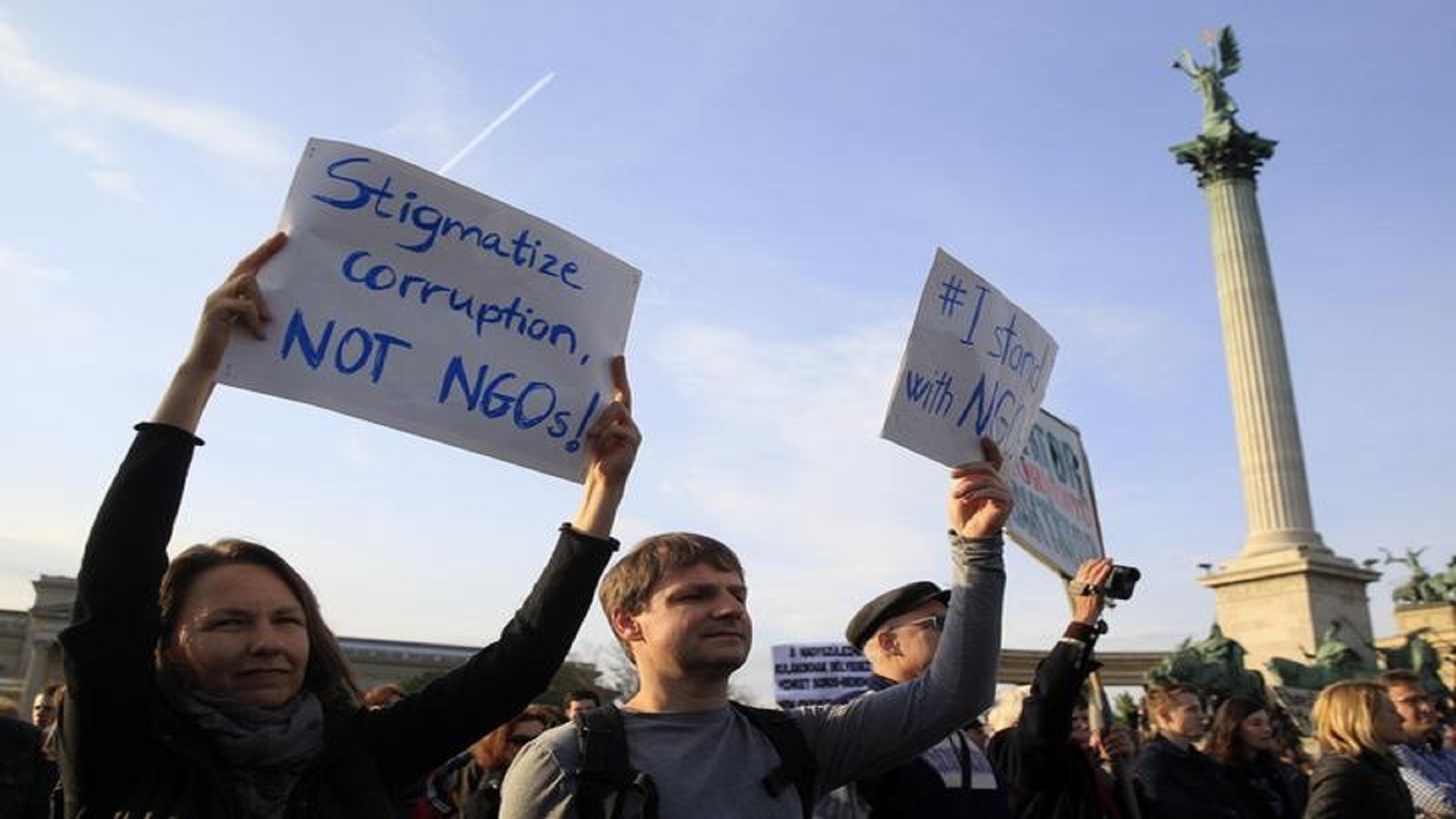Image: People hold placards during a protest in Heroes’ square against a new law that would undermine Central European University, a liberal graduate school of social sciences founded by U.S. financier George Soros in Budapest, Hungary, April 12, 2016. REUTERS/Bernadett Szabo
By Marton Dunai
BUDAPEST (Reuters) – Thousands of Hungarians protested in central Budapest on Wednesday against what they fear is a crackdown on free thought and education by government proposals to restrict foreign universities and non-government organisations.
Prime Minister Viktor Orban, who has advocated a self-styled “illiberal democracy”, has said strong national governments were necessary to preserve the European way of life in the face of migration and multiculturalism — at odds with liberal beliefs.
Protesters filled the capital’s Heroes’ Square and formed a heart shape and the word ‘CIVIL’ from human bodies. It was the fourth major street demonstration in the last two weeks as the government faces growing resistance a year before elections are due.
“They have pressed ahead since 2010 with new moves ever day that hurt democracy in some way,” Robert Ferenczi, a 55 year-old protester from Budapest, told Reuters.
“Lately they seem to have sped up that effort. I don’t know how far they can go. I always think there is no way to up this ante, but they always do.”
The protest drew a big crowd despite an apparent reversal of one law that targeted Central European University, founded by Hungarian-American George Soros and widely seen as a bastion of liberal thought in central Europe.
It still leaves in place another bill, which would require non-governmental organisations with foreign donations of at least 7.2 million forints ($24,500) to register with authorities and declare themselves as foreign-funded.
STIGMA
NGO’s have said the bill stigmatises them.
“They should cooperate so we can solve real problems together,” said Kriszti Kovacs, an activist with Bagazs, a group that works on the integration of Roma slums into mainstream society.
“This hurts us, not by the data we have to publish because we already publish them, it hurts us through the ideology that it brings, the discrimination, the rejection of civil input, of undermining our operations, and trying to turn society against us, who work the most for it.”
Critics have said Orban’s effort to stifle dissent is akin to a similar push by President Vladimir Putin of Russia, a country which Orban has said it wanted to emulate in Hungary.
Orban’s moves have enraged his critics but failed to dent his political dominance, with his Fidesz party a runaway leader in all polls and the fragmented opposition chasing from afar.
The Hungarian leader, whose power over the media and the courts, as well as a growing dominance of people loyal to him in many business sectors, gives him a choke hold that is seen unlikely to be wrested form him next year.
The government in a statement on Wednesday framed the NGO and the university issues in the context of migration, another area where Orban has locked horns with the West.
“Pressure on Hungary has begun in order to induce the Hungarian government to surrender on the issue of migration,” spokesman Zoltan Kovacs said in an emailed statement.
“This is the common point in the views of the Soros organisations and the (European) Commission in Brussels. Hungary is ready for debates, but we are not going to yield an inch as far as the issue of immigration is concerned.”
(Reporting by Marton Dunai; Editing by Angus MacSwan)
Copyright 2017 Thomson Reuters. Click for Restrictions.


